AN ELECTRIC TRACTOR MAY BE IN YOUR FUTURE
It’s been nearly 30 years since Steve Heckeroth designed and built his first electric tractor. Since then, he’s converted diesel tractors to electric power, custom-built electric tractors, and assembled an experimental electric tractor for Ford New Holland as early as 1995. Today, as founder of Solectrac, Heckeroth is finally seeing electric tractors taken seriously by both customers and other manufacturers.
California-based Solectrac has sold about two dozen of its battery-powered tractors since 2018 and has accumulated about $1 million worth of back orders because of pandemic-related issues.
“The biggest problem with electric cars is the weight of the batteries,” says Heckeroth, who has a background in solar power and electric vehicles. “I realized very quickly that weight on a tractor is actually an asset that improves traction.”
More than 14 countries and over 20 cities have proposed or enacted bans on the sale of cars, and in some cases light trucks, powered by fossil fuels; the bans will go into effect from five to 20 years from now. Heckeroth expects a ban on small gasoline- and diesel-powered tractors to follow, especially in large cities. The push to reduce air pollution is primarily driving the market, but he lists a number of benefits an electric tractor offers over its diesel counterpart.
“In addition to being cleaner and quieter, an electric tractor is much more efficient, since all the energy goes into work; whereas, in a diesel tractor, much of it is wasted as heat,” he explains. “In addition, maximum torque is available immediately rather than at rated engine speed. Finally, since the power source has just one moving part, they require very little maintenance. Even the batteries are projected to last 10 years, pending operating cycles and depth of discharge.”
Solectrac currently offers a 30-hp. compact and a 40-hp. utility model. The company just introduced a 70-hp. vineyard and orchard tractor, which addresses the specific needs of that specialty market with its narrow width and greater horsepower.
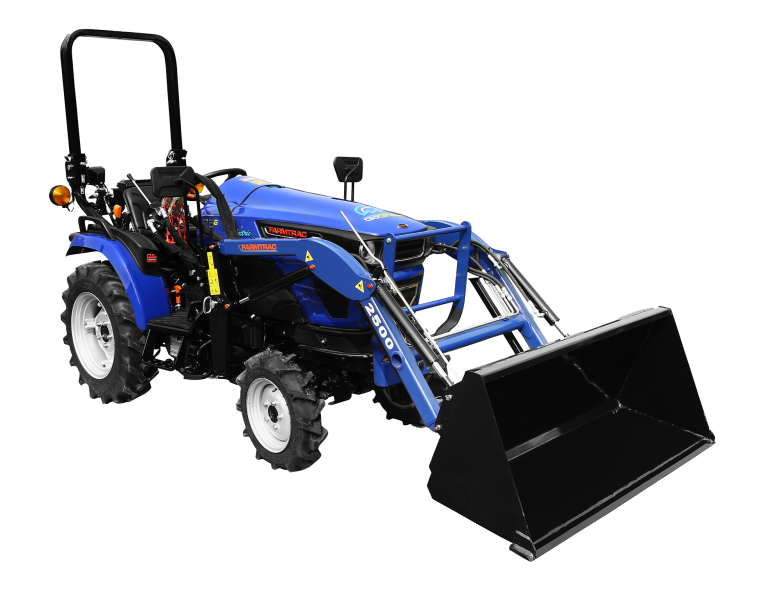
MONARCH TRACTOR
Equipped with an electric drivetrain capable of providing 40 hp. of continuous power and short-duration peak power up to 70 hp., the Monarch combines electrification, automation, machine learning, and data analysis to bring a fully electric, driver-optional, smart tractor to the farm in a single platform.
“Monarch Tractor is moving farming toward a safer, sustainable future by eliminating harmful emissions, reducing the need for herbicides, and keeping workers out of harm’s way with its driver-optional capabilities,” says Carl Mondavi, Monarch Tractor chief farming officer.
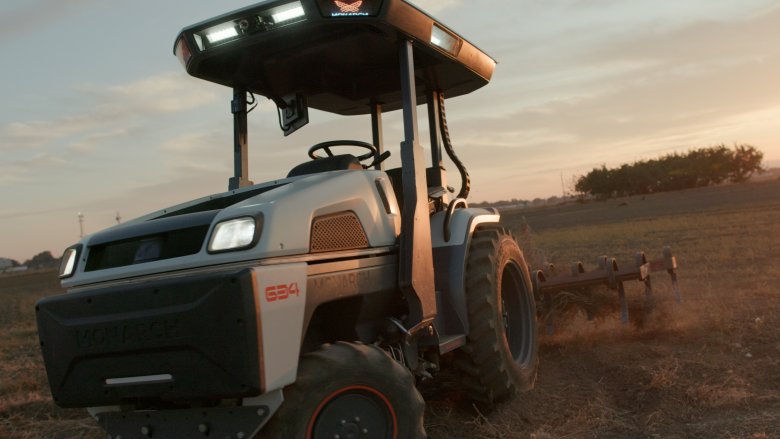
The California company recently received a minority investment from CNH Industrial that will share Monarch Tractor’s electric and autonomous tractor technology across CNH’s portfolio of ag brands.
“This partnership underscores our commitment to rapidly improving our alternative propulsion and precision-farming portfolio, while extending our world-leading sustainability credentials,” says Scott Wine, CEO, CNH Industrial.
KUBOTA PROTOTYPES
Kubota recently released two prototype machines powered by lithium-ion batteries that will be tested in France later this year. One is a compact tractor, while the other is a mini excavator. The company says the maximum output of both machines will be equivalent to that of models with diesel engines.
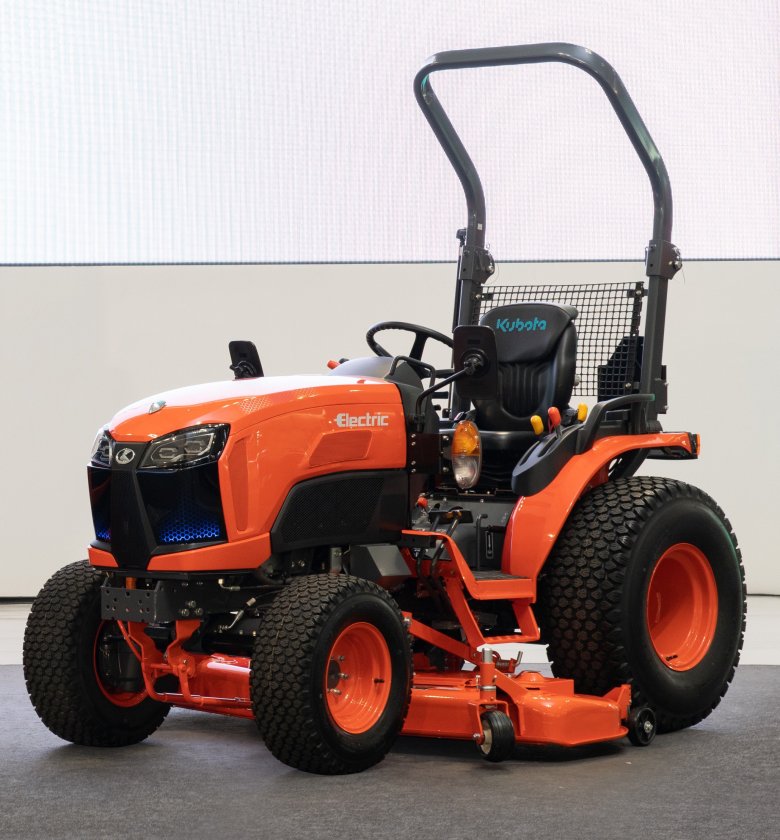
FENDT E100 VARIO
AGCO has looked to its Fendt division to take the lead in electric tractor production. The company has already developed a 75-kW (100 hp.) electric tractor. Known as the Fendt e100 Vario, the all-electric compact tractor operates up to 10 hours under actual operating conditions and can be recharged to 80% in just 40 minutes.

“The technology developed by the auto industry has been a big driver in development of electric tractors,” says Tom Turner, AGCO strategic marketing manager for high-horsepower tractors, pointing to higher-capacity batteries with faster charging cycles. “Now, we’re just trying to get ahead of the curve.
“The Fendt e100 is similar in size and power to the Fendt 200,” he adds. “Thanks to its quiet and emissions-free operation, we see real potential for an electric tractor that size, particularly among small farms and livestock operations and for use in urban and residential areas. Compact tractors aren’t typically used a long distance from home or the shop; they often spend a fair amount of time idle.”
Like Heckeroth, Turner points out that an electric tractor eliminates the cost of fuel, oil, DEF, etc., and the batteries can be charged via renewable energy sources, such as solar or wind power for an even lower cost of operation. Thanks to the three-point hitch, hydraulic remote valves, and PTO, an electric tractor can operate any existing implement as well as electric-powered implements being developed.
JOHN DEERE GRIDCON
Unfortunately, Turner doesn’t see electric tractors going much higher than 100 hp. or much longer than a few hours on a charge with current technology. John Deere has attempted to remedy those issues with its cable-powered prototype GridCON. Unlike its earlier battery-powered prototypes, the fully electric, autonomous tractor provides up to 400 hp. (300 kW) and is powered by an electric cable connection from the field border to the tractor via a drum that carries more than 1,000 yards of cable.
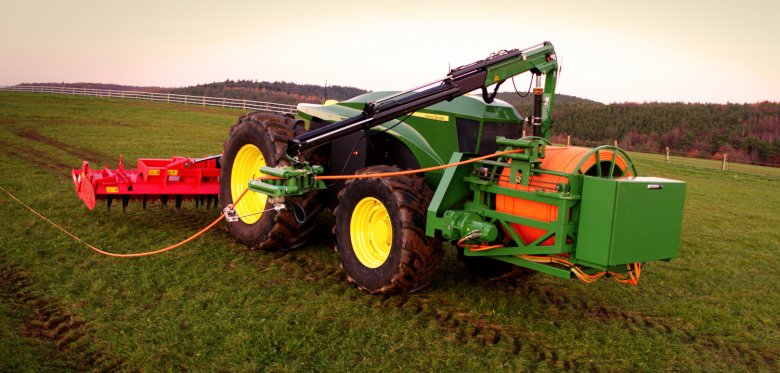
“The biggest challenge for battery electric tractors is available energy capacity in batteries today compared with the energy required for typical farming operations,” says Dennis Muszalski, director, module and electrification system engineering, John Deere. “During the critical windows of planting and harvesting, availability of equipment is paramount. Our customers can’t afford any delays due to limitations of battery capacity resulting in frequent and lengthy recharging.”
Although prices aren’t available yet for prototype models, the Monarch has a base price of $50,000. Solectrac tractors currently list for about 20% more than a comparable diesel model. However, the lower maintenance costs should offset much of that.
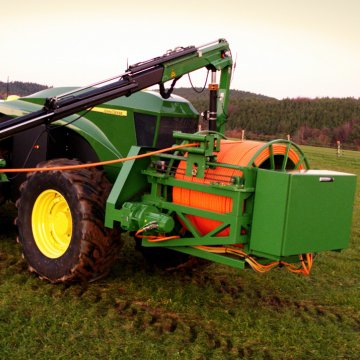
No comments:
Post a Comment